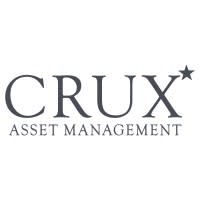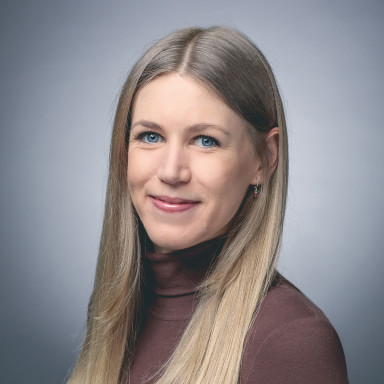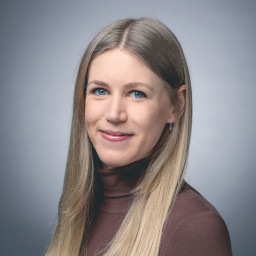Daniel Avigad took over management of this fund in September 2023
The fund continues to invest in European companies, though the new manager has applied his own investment process
The track record on this fund is short, but Avigad has managed other European funds for over a decade
This fund does not feature on our Wealth Shortlist of funds chosen by our analysts for their long-term performance potential
How it fits into a portfolio
The TM CRUX European Special Situations Fund aims to provide long-term growth by investing in companies based across Europe, including France, Switzerland, Italy and Finland. It aims to grow at least 3% more than the MSCI Europe ex UK index on average each year across a full market cycle.
This fund could be used to diversify the European part of an investment portfolio, or a broader global portfolio focused on long-term growth. It was recently taken over by a new fund manager, so investors should consider whether they remain comfortable with the new manager and investment process.
Manager
Daniel Avigad has managed a European fund at Lansdowne Partners since 2012. He took over management of TM CRUX European Special Situations after Lansdowne Partners acquired CRUX Asset Management in 2023. He’s also a Partner and Management Committee member of Lansdowne Partners and Head of the Lansdowne European Long Only Strategy. Before joining Lansdowne in 2006, Avigad analysed UK and European company shares for five years at Dresdner Kleinwort Wasserstein.
Shashwat Verma is the CRUX fund’s deputy manager and became deputy manager of the Lansdowne fund in January 2021. He re-joined Lansdowne Partners in September 2016 as an analyst, after previously working at the firm from 2011-2014.
The managers are supported by two analysts who joined Lansdowne Partners in the summer of 2023. Darren Ho Jian Rong previously covered US and global companies since 2015, while Valerio Dussizza was previously an intern for Lansdowne’s European team for eight months.
Process
Avigad and his team believe companies operate in a cycle, similar to the three stages of the lifecycle of humans – infancy, adolescence and maturity.
Within this framework, the team believes there are two key types of investment opportunity. Firstly, in the infancy stage, they aim to identify if the demand for a company’s products or services has been misunderstood by other investors. Secondly, later in the cycle as companies transition from adolescence to maturity, they consider the level of supply of products to the market – for example they look at companies that have the potential to recover from over-supplying their products.
The team also monitors four catalysts that could cause an inflection point in the cycle, and how this may impact companies. The four catalysts are: regulation, the cost of capital (how much it costs a business to pay for its operations), technological disruption, and consumer habits (which impacts demand).
Meeting company management is a key part of the investment process. The team meet around 300 companies each year and have extensive notes and due diligence on hundreds of companies. This is a shared resource that has taken years to build, which Avigad views as something that’s hard to replicate by others.
New investments tend to make up a small part of the fund and increase over time as the team builds conviction and due diligence of the firm. This leads to a portfolio of around 20-40 companies – this means each investment can have a significant impact on performance, though this increases risk. There are currently 28 companies in the fund.
There are some similarities between Avigad and the previous fund manager’s investment process. For example, they both place importance on engaging with companies and developing relationships with management over time. Naturally though, there are differences in the way they implement their approach. This means Avigad has changed some of the fund’s investments, with only four companies under the previous manager remaining. This includes Schneider Electric, which is involved in energy and sustainability solutions, pharmaceutical company Novo Nordisk, Nordic insurance group Sampo and energy and petroleum business TotalEnergies.
Other companies that have been added to the fund include chemicals companies Linde and Sika, European airliner Ryanair, and tyre manufacturer Michelin.
The previous manager invested in companies of all sizes, while Avigad tends to focus on large and medium-sized businesses. That said, he does have the ability to invest in higher-risk smaller companies.
It’s worth noting that while Avigad has managed another European fund for over 10 years, this one can only invest up to 5% in UK companies, whereas his existing Lansdowne fund invests around 20-25% in the UK. While there is overlap between the two funds, especially in terms of the investment process, the difference in some investments will impact performance over time.
As a result of the change in manager and process, and the ongoing changes as a result of the acquisition, we will continue to monitor the fund before considering it for the Wealth Shortlist.
Culture
Richard Pease was a founder, and remains a shareholder, of CRUX Asset Management. He wanted to ensure the fund and business was acquired by an experienced investor and has been on hand for the transition period, but he’s no longer involved in the management of this fund.
Fund management acquisitions inevitably lead to some disruption, and it generally takes time for changes like this to settle. That said, Avigad and his team fully changed the fund by September 2023 to make it their own, and many of the other employees at CRUX remain in place. This includes employees at an operational level, as well as fund managers such as Ewan Markson-Brown, who joined from Baillie Gifford in 2022 to manage an Asian equity fund.
Avigad and Verma’s interests are aligned with the success of the team and fund, as they receive a fixed share of the profits from fees and invest a meaningful amount in their funds. They also receive income from the business partnership, so they’re aligned with the success of the broader firm.
Given the recent acquisition, investors should note this fund could change its name to align it with the broader Lansdowne fund range.
ESG integration
Avigad believes Environmental, Social and Governance (ESG) issues have always formed a core part of the investment process. Engaging with company management is a part of this, and all company meetings include a ESG component as the manager feels it’s vital to understand the sustainability of a business. The team is unlikely to invest in companies where it appears that management is not acting in the best interests of shareholders. That said, the team don’t have an exclusions list, which means they have the option to invest in any sector.
A recent example of engagement is with food and drink company Nestlé. The team met its Sustainability Manager to discuss the potential to reduce energy, water, carbon and land usage by over 50%, by investing in cell-based meat production. They believe traditional agriculture uses land that could be repurposed towards reforestation, which in turn could help absorb global CO2 emissions. Given its scale, Nestlé has the potential to play a key role in achieving this. After their meeting, the company announced its entry into the alternative meat-based market.
Cost
This fund's annual ongoing fund charge is 0.83%, but after a 0.14% saving it's available at 0.69% through the HL platform. The saving is achieved through a loyalty bonus, which could be subject to tax if held outside of an ISA or SIPP. The HL platform fee of up to 0.45% per year also applies.
Please note the fund's charges can be taken from capital rather than income. This increases the yield but reduces the potential for capital growth.
Performance
The TM CRUX European Special Situations fund has grown 7.69%* compared with 6.44% for the MSCI Europe ex UK index since Avigad took over its management in September 2023. This is a very short timeframe though, so an investment decision should not be made purely on that basis.
Avigad has managed the Lansdowne European Long Only fund since 2012. Over this time, the fund has performed better than the broader European stock market, as measured by its benchmark the MSCI Europe index. As always, past performance isn’t a guide to future returns.
Over the longer term, Avigad expects this fund to share the same level of volatility (its ups and downs) as the market. However, given the focus on what he believes to be solid, well-established businesses, he expects the fund to hold up better than the market when it falls.
Annual percentage growth
31/12/2018 To 31/12/2019 | 31/12/2019 To 31/12/2020 | 31/12/2020 To 31/12/2021 | 31/12/2021 To 31/12/2022 | 31/12/2022 To 31/12/2023 | |
|---|---|---|---|---|---|
TM CRUX European Special Situations | 21.00 | 3.99 | 12.39 | -11.05 | 11.45 |
MSCI Europe ex UK | 21.04 | 8.20 | 17.59 | -6.86 | 15.77 |
IA Europe Excluding UK | 20.14 | 10.74 | 15.66 | -9.22 | 13.49 |
Past performance is not a guide to the future. Source: *Lipper IM to 31/12/2023.
Find out more about this fund, including charges


